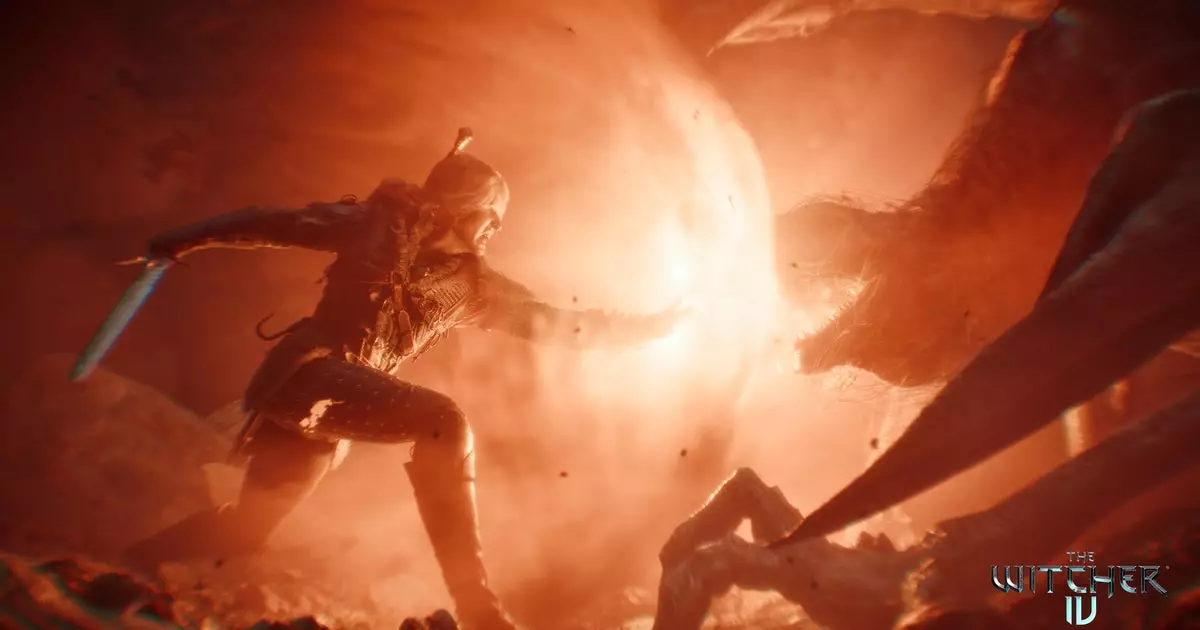The recent announcement of The Witcher 4 has stirred a blend of excitement and critique, particularly with the confirmation that Ciri, an established character from The Witcher 3: Wild Hunt, will take center stage as the protagonist. Transitioning from the traditional male hero, Geralt of Rivia, to a titular female lead has ignited discussions within the gaming community. The discourse ranges from skepticism regarding Ciri’s capabilities as a witcher to broader reflections on gender representation within a fantasy universe known for its darker themes. As the developers at CD Projekt Red navigate these waters, the implications of this character shift reveal much about the series’ evolution and the challenges of storytelling in a complex narrative landscape.
Ciri’s character offers a rich narrative opportunity. Unlike Geralt, who at the onset of his journey is already an accomplished witcher steeped in experience, Ciri presents a fresh start. The Witcher 4 promises players the chance to explore her development, transforming her from a defined character into a more malleable protagonist whose journey players can shape. This distinction can help craft a story that not only expands on personal identity but also addresses broader themes of growth, morality, and power within a challenging world.
In interviews, game director Sebastian Kalemba and narrative director Philipp Weber have emphasized Ciri’s inherent potential for character-driven storytelling. Ciri is not merely stepping into Geralt’s shoes; she offers a unique lens through which players can explore the complex societal dynamics of The Witcher universe. This transition opens up a dialogue on the nature of heroism, where the parameters of strength, skill, and decision-making might diverge from the established norms associated with traditional male-led narratives.
The choice to position Ciri as the protagonist is particularly significant against the backdrop of The Witcher series’ history, which has faced criticism for its portrayal of women. The franchise has often leaned into misogynistic tropes, illustrating a world rife with sexualization and nuanced gender politics. By centering a female character in a genre that has frequently sidelined women, CD Projekt Red faces the challenge of redefining these narratives.
As the developers strive to introduce Ciri into this complex world, Weber has acknowledged the darker undertones present in The Witcher lore, which draw inspiration from real historical misogyny intertwined with fantasy elements. He hints at a conscious effort to tackle these themes without glossing over the difficulties inherent in a patriarchal society. This commitment to addressing serious issues such as sexism and racism may provide a richer backdrop for players, inviting them to engage with the narrative on a more profound level.
One of the core questions regarding Ciri’s role in The Witcher 4 centers on gameplay mechanics. Ciri’s existing abilities have previously set her apart from typical witchers, potentially complicating the familiar combat systems players have come to expect. Speculation arises around how her powers will be curated to maintain game balance, especially coming off the intense abilities she exhibited at the end of The Witcher 3.
CD Projekt Red’s commitment to character-driven storytelling suggests that Ciri’s journey will not only focus on her personal development but will also incorporate gameplay elements that reflect her unique capabilities. Although specific details regarding her initial power state remain undisclosed, the developers are cognizant of the need to create an engaging experience that honors her character.
The Witcher 4 marks a pivotal moment for the franchise, promising to encapsulate rich narrative themes and offer players an opportunity to explore uncharted territory. Ciri’s transition from supporting character to lead protagonist is a bold choice that not only reflects a shift in narrative focus but also signals a broader change within the gaming industry towards embracing diverse characters and stories.
While the path forward carries its uncertainties—especially regarding gameplay mechanics and the handling of sensitive themes—there is an inherent optimism in the way CD Projekt Red aims to navigate this landscape. As they pursue a narrative that reflects the complexities of Ciri’s character and the world she inhabits, players can anticipate a more nuanced and engaging Witcher experience that goes beyond traditional narrative tropes. In this evolving landscape of video games, Ciri’s story may well help redefine the boundaries of character representation in this beloved series.

